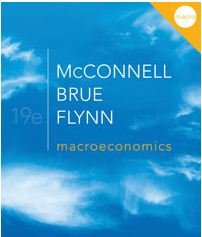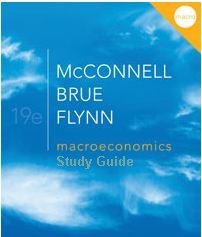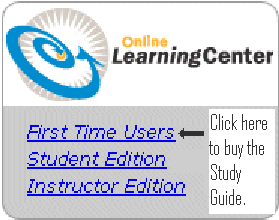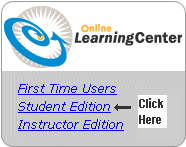|
|
|
|
ECO 212 ONLINE!
ECO 212-W01 and ECO 212-W65
ORIENTATION
- The orientation for ECO 212-W01 is Tuesday, 8/21, 5:00-6:15 p.m. in room J-251.
- The orientation for ECO 212-W65 is Tuesday, 9/18,
5:00-6:15 p.m. in room J-263.
The orientation is optional. All the information is available online on this syllabus and on the orientation webpage at: ORIENTATION
INSTRUCTOR
- Mark Healy
- OFFICE: J-262
- PHONE:
- Harper: 847-925-6352
- Home: 815-728-1571
- Cell: 815-861-7265
- E-MAIL: mhealy@harpercollege.edu
- OFFICE HOURS
COURSE DESCRIPTION
Almost every day we hear news reports of economic problems and economic successes from around the world. All over the world countries are undertaking economic reforms, often called STRUCTURAL ADJUSTMENT POLICIES, that their leaders believe will provide their citizens with lower unemployment and higher living standards. Such programs are often considered part of a process called GLOBALIZATION.This course will cover the area of economics commonly defined as macroeconomics. The main goal of macroeconomics is to gain a better understanding of the causes of, and remedies for, UNEMPLOYMENT and INFLATION, as well as the factors that affect ECONOMIC GROWTH.
We will study these macroeconomic issues in an international context to try to understand the economic reforms many countries are undertaking.
You will use a textbook, study guide, and internet websites as your source of course content. You will also use the internet to communicate with the instructor and with each other, and to submit assignments.
TEXTBOOKS
REQUIRED:
Macroeconomic by Campbell R. McConnell, Brue, and Flynn, 19th edition, McGraw-Hill, 2011
ISBNs:
- Paperback: 9780077337728
- Ebook: 9780077233334
- Textbooks can be bought or rented at the Harper College Bookstore (L building) or online at: http://www.harperstore.com
- buy new for $186 plus sales tax [Students can sell the book back for up to 50% ($93) of what they paid, $186 - $93 = $93)
- buy used for $140 plus sales tax [Students can sell the book back for up to 50% ($70) of what they paid, ($140 - $70= $70)
- rent for $84 and will NOT pay sales taxes.
OR
- You can purchase the ebook by calling 1-800-262-4729
- Students can also rent the book for about $42 plus $5 shipping from http://www.chegg.com
REQUIRED:
Study Guide For Macroeconomics, McConnell/Brue/Walstad
ISBN 978-0-07-733796-4
- OR
Available in an online version for $15 at:
BLACKBOARD
- Always use the the Firefox browser when using
blackboard (http://www.mozilla.org/en-US/)

- Go to http://harper.blackboard.com
- Follow the instructions to "log-in",
- If you need help go to the Blackboard link above and see "Student Information".
- After you log in you should see "ECO 212 W01 MACROECONOMICS (Fall 2012)"
- All students in ECO 212-W65 will use the
Blackboard site for ECO 212-W01.
- If you do not, please e-mail the instructor at mhealy@harpercollege.edu
- Students are responsible for the information provided via the Blackboard announcements. Remember to click on the "View All" tab.
When e-mailing your instructor always put "ECO 212" and a message in the subject line. Please use proper spelling, punctuation, and grammar.Option to Forward Mail from your Harper E-mail Account
If you are not planning on using your Harper email account, you can find instructions on how to forward email from that account to one you check frequently by logging in to the Harper Student Portal and clicking on the "My Harper E-Mail" tab. All correspondence in this class will be sent to your Harper e-mail account.
TEXTBOOK WEBSITE
- http://www.mcconnell19e.com,
- click on "Macroeconomics",
- then click on "Online Learning Center - Student Edition" in lower left-hand corner
DISCUSSION BOARD
- Use the Discussion Forum any question which might be of use to other students - like asking a question in class. Do not ask such questions via e-mail. If you use the Discussion Board everyone can "hear" the answer.
- Since we do not use the discussion board a lot, it
is strongly suggested that you SUBSCRIBE to the
discussion board thread so that you get an e-mail
whenever a new message is posted. Just click on the
"Discussion Board" link, click on "STUDENT QUESTIONS",
then click on the "Subscribe" button.
GRADING
The final grade for the class will be awarded according to the following point system. Changes may be made to this grading policy. All changes will be announced in class and posted on the class web page.
ACTIVITY
INFORMATION
POINTS
1 syllabus quiz
5 points, taken online (Blackboard)
5 points
12 Required Activities
The Required Activities are online (Blackboard) chapter review quizzes of about 20 questions - usually multiple choice. They are worth two points per quiz/chapter. They can be retaken as many times as you wish and only the highest score will be included in the grade book.
24 points
5 online quizzes
10 multiple choice questions (5 points each)
25 points
3 unit exams
40 multiple choice questions each *
120 points
Final Exam
80 multiple choice questions, COMPREHENSIVE
80 points
|
|
TOTAL: 254 POINTS
EXAMS
All exams will be taken on the Harper campus in the Assessment Center, Student and Administration Center, room A-148, phone 847-925-6541 [see: Assessment Center hours]. To take the exams you simply go to the testing center with a picture ID and ask for the appropriate exam for ECO 212.Exams should be taken on, or before, the day listed on the "CHAPTERS - BEGIN HERE" link on Blackboard. Exams 1, 2, and 3 consist of 40 multiple choice questions (each worth one point) and an extra credit essay ( worth three points). After you SUBMIT your answers to the forty multiple choice questions the extra credit essay link will appear under the Blackboard "EXAMS" link. If you ask on the Discussion Board, I will tell give you more information on the extra credit questions. The comprehensive final exam is 80 multiple choice questions.
* RETAKE EXAMS
Optional "retake" exams (same chapters, different questions) are available for exams 1, 2, and 3. If you take a retake, only the higher score will be included in your total score. Be sure to tell the Testing Center personnel that you wish to do a RETAKE. Retake exams also have an extra credit essay question.Please do not take the retake on the same day that you took the exam. If you need to retake an exam then you need to study more first.
EXAM MAKE-UP POLICY
Students will be allowed to take an exam on a day later than that on the schedule only IF:
1. the instructor is notified BEFORE the week the exam is scheduled AND
2. the student has a very good reason.
QUIZZES
The five quizzes are online at our Blackboard site and they will be taken at home via the internet. They consist of 10 multiple choice questions each and will be worth 5 points per quiz. They can be attempted ONLY ONCE (i.e. you must finish the 10 questions the first time you access them), but there is no time limit.
REQUIRED ACTIVITIES
For each chapter you will need to complete the online "Required Activity". These can be found on Blackboard under the "CHAPTERS - BEGIN HERE" link. The Required Activity for each chapter are worth two points each. You can do them as many times as you wish and only the highest score will be recorded. Most Required Activities are twenty multiple choice questions.
SURVEY QUESTION
For each chapter there is a SURVEY QUESTION found on Blackboard under the "CHAPTERS - BEGIN HERE" link. Do this first just for fun (no points) and to get an idea of the types of issues that will be addressed in the chapter.
BRIEF COURSE OUTLINE
The exact reading assignments can be found on the Blackboard Assignments link. See the link before you begin reading.
UNIT 1 - WHAT IS ECONOMICS and GLOBALIZATIONPart 1 Why is the World Moving to Capitalism?
Ch 1
Introduction to Efficiency and to the Study of Economics
Ch. 2
An Introduction to the Global Economy
Part 2 How Capitalism Works
Ch. 3
Efficiency and Markets: Supply and Demand
Ch. 5
Market Failure and The Role of Government in a Market Economy
Ch. 20
Efficiency, Specialization, and Exchange (Trade)
UNIT 2 - INTRODUCTION TO MACROECONOMICS
* Chapter 22W is online at:
Ch. 12
A Model of the Macro Economy: AS and AD
Ch. 6
An Introduction to Macroeconomics
Ch. 9
Business Cycles: Unemployment and Inflation
Ch. 7
Measuring Domestic Output
Ch. 8
Economic Growth
Ch 22 W*
The Economics of Developing Economies
UNIT 3- -MACROECONOMIC POLICY
Ch. 10, 13
Fiscal Policy
Ch. 14-16
Monetary Policy
NOTE:
- We jump around the book a bit. Often a "chapter" will be only partial and/or it will include pages from other chapters. The exact reading assignments can be found on the Assignments link. See the link before you begin reading.
- This outline may be changed. All changes will be posted on the Blackboard announcements and announced via e-mail.
HOW TO PASS ECONOMICS
This is a difficult course! There is an old rule of thumb concerning studying for college courses: on average during a regular 16 week semester, students should attend class 3 hours a week and they should study outside of class TWO hours for every ONE hour of class. Since this is a three-hour online class this means that you should plan for NINE hours a week (three hours of "class" PLUS 2 x 3 hours of studying). This is an average, which means some courses require more study time and some less. You may find that economics requires MORE.The following suggestions should help you learn economics:
- Passive reading of the textbook is not very helpful. Read with a pen in your hand and a notebook on which to list, repeat, copy, calculate, etc. ALSO, pay close attention to the TABLES and GRAPHS. THEY ARE IMPORTANT.
- "Attend class." This means read and study the Online Lectures and if you want something explained, ASK using the Discussion Board.
- Do problems. The ASSIGNMENTS link will list the problems from the Study Guide that you are responsible for in each unit. DO THEM ALL. If you can't do a problem ask about it using the Discussion Board or you will do poorly on the quizzes and exams. Also, be sure to complete the Required Activity problems before taking the unit exams.
- When doing the multiple choice questions in the Study Guide, it is suggested that you do NOT circle the answers in the book. Rather, write the letter of the answer that you selected on a separate sheet of paper. There are two reasons for doing this: (1) it is easier to grade them since all answers are listed together at the end of the Study Guide chapters, and (2) by not writing in the study guide you can go over the questions again and again without having the correct (or incorrect) answers already marked.
- Ask the instructor for assistance. This can be done on the Discussion Board, via e-mail, or by phone.
- Keep up. It is VERY EASY to get behind in distance learning courses. To get a good grade you will have to devote a significant amount of out of class time to studying economics. If you get behind there simply will not be enough time. Follow the "CHAPTERS - BEGIN HERE" link on Blackboard.
- Try to APPLY the concepts learned in class to the "real world" including issues in the news and aspects of your personal life.
EXAM AND QUIZ SCHEDULE
ECO 212-W01
- The orientation for ECO 212-W01 is Tuesday, 8/21, 5:00-6:15 p.m. in room J-251.
- Syllabus Quiz. Take the 5-point Syllabus Quiz at: http://harper.blackboard.com/ before Tuesday, 9/4
- Unit 1: Chapters 1, 2, 3, 5 & 20, 4 on, or
before, 10/4
- Surveys, Required Activities, Quizzes 1, 2 and 3 and Exam 1
- Unit 2: Chapter 6, 12, 9, 7, 8, and 22W on, or
before, 11/8
- Surveys, Required Activities, Quiz 4,and Exam 2
- Last day to withdraw from the course: Sunday, 11/18
- Unit 3: Chapters 10, 13, 14, 15, 16 on, or before,
12/6
- Surveys, Required Activities, Quiz 5, Exam 3
- The comprehensive final and all retake exams must by completed on or before Thursday, 12/13.
ECO 212-W65
- The orientation for ECO 212-W65 is Tuesday, 9/18, 5:00-6:15 p.m. in room J-263.
- Syllabus Quiz. Take the 5-point Syllabus Quiz at: http://harper.blackboard.com/ before Tuesday, 10/2
- Unit 1: Chapters 1, 2, 3, 5 & 20, 4 on, or
before, 10/18
- Surveys, Required Activities, Quizzes 1, 2 and 3 and Exam 1
- Unit 2: Chapter 6, 12, 9, 7, 8, and 22W on, or
before, 11/15
- Surveys, Required Activities, Quiz 4, and Exam 2
- Last day to withdraw from the course: Sunday, 11/25
- Unit 3: Chapters 10, 13, 14, 15, 16 on, or before,
12/13
- Surveys, Required Activities, Quiz 5, Exam 3
- The comprehensive final and all retake exams must by completed on or before Thursday, 12/13



